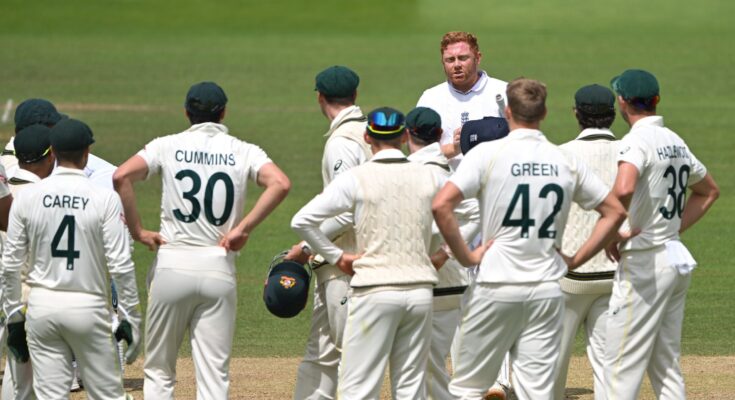‘The spirit of cricket’ is an outdated tradition that should not exist as it is not a true reflection of modern society and how the game is played in the 21st century.
When you edge the ball to the keeper you should walk without the umpire having to decide. When the batters enter the field of play, they should be applauded. When walking off the ground at the end of the innings or end of the day’s play the batters should be allowed to exit first with the fielding team following behind them. Right…?
Well, if you look through the MCC Laws of cricket or the ICC playing conditions you will struggle to find any mention of such practices. Yet it has been enshrined in the age-old tradition of ‘The spirit of cricket’.
‘The spirit of cricket’ is a moral code that stems from the creation of the game in 18th century England. At the time the game was run by upper class ‘gentlemen’ who were amateurs and would do all the batting and would pay professionals to do the enduring task of bowling. ‘The spirit of cricket’ thus became a form of self-governance and epitomised the notion of being a ‘gentlemen’.
The issue begins with the fact that the ideals and practices that are so synonymous with the ‘gentlemen’ nature of ‘The spirit of cricket’ do not exist in any form of written law within the MCC or ICC. Therefore, it is impossible for the ‘The spirit of cricket’ to be agreed upon in the modern day and age.
In 1800’s England, ‘The spirit of cricket’ was a societal norm and an extension of the courteous and honest ideal of being a ‘gentlemen’. However, the game has changed drastically since then with the sport being played all over the commonwealth and now even stretching to non-commonwealth nations. The sport is more professional than it has ever been and is a stark contrast to the stronghold that the amateurs had over cricket almost 200 years ago.
Cricket is now played by many hundreds of millions of participants right across the globe and players from all different backgrounds and societies. So, the idea that all players and participants should be able to unanimously agree to a set of non-written moral laws that are defined by ethics is surely ludicrous.
It is impossible for people from different societies to all have one moral code for playing the game as every nation and team has a different relationship with the sport. In England, for example, the professional side of the sport of cricket is still dominated by the upper class as the majority of county and international players come from backgrounds of private school education. However, the majority of club cricket and recreational cricket in parks and other communal areas are largely played by migrant populations from South Asia.
The Recreational side of cricket often has a more competitive element to the game where ‘The spirit of cricket’ is largely ignored and the game is followed to the letter of the law as every attempt is made to gain any advantage possible over the opposition. However, when individuals from a more upper-class background play cricket they still hold on to the gentlemen nature of ‘The spirit of cricket’.
In International matches, different nations play against each other and with the ever-increasing popularity of Franchise T20 leagues, a lot of these players are not only opposing one another but also competing together. Even in club cricket, throughout the UK and many other parts of the world, the majority of leagues are a mix of cultures and backgrounds not even mentioning the fact that many teams will have a set of designated ‘Overseas’ players brought in from abroad to specifically play cricket for a local team.
The Indian Premier League was founded by the “Board of Control for Cricket in India” in 2008. The tournament has turned cricket closer towards the American Sports model of being an entertainment business therefore changing the game as we know it. It has the highest attendance amongst all cricket leagues in the world, which in turn brings in huge revenue sums. The handshake with the advertising and entertainment industry became evident in the high franchise value of the teams.
The teams are actively followed on all social networking platforms. Combined, the IPL teams recorded over 50 million likes on Facebook and had a follower base of more than 80 million on Twitter. With the highest average annual player salary belonging to the Mumbai Indians, where a player in the 2019 season of the IPL earning was over 5.47 million U.S. dollars.
In the modern day and age, it is not possible for a set of age-old moral laws that were specific to a certain class of people from a specific nation to have a place in the game of cricket.
The commercialisation of sport now means that cricket is a multi-billion-dollar industry where every ball bowled, and every game played has more at stake than ever before.
Entire nations are affected by the outcome of such games and many hundreds of players have their livelihood impacted by on field performances. So, to allow ‘The spirit of cricket’ to judge morally and ethically an individual, team or society is no longer viable in the sport of cricket.



